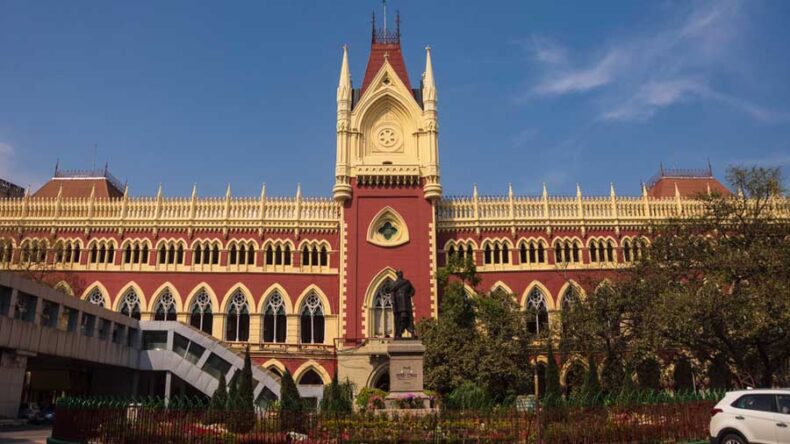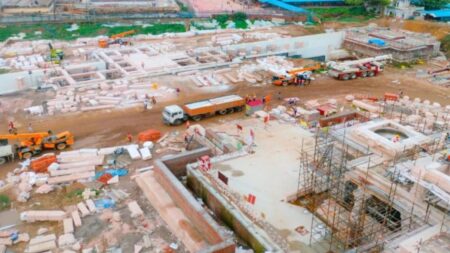The court set down rules for the video recording all drug seizure processes after hearing a case in which serious mistakes were made by the seizing police and requested comments from the NCB and Union government.
The Narcotic Drugs and Psychotropic Substances (NDPS) Act’s harsh provisions are occasionally abused, according to the Calcutta High Court, which on Wednesday, June 22, issued an order requiring all seizing officers in cases where narcotic substances are recovered to record the entire procedure on video in the future.
Additionally, it ordered that a detailed explanation of the circumstances surrounding the authorities’ decision not to film the surgery must be included in the investigative record.
The decision was made when a panel of Justices Joymalya Bagchi and Ananya Bandyopadhyay was deliberating a case in which serious errors were made by the investigating agency when recovering drugs under the NDPS Act.
The absence of all the accused who were allegedly arrested from the scene was not listed on the seizure list in the case.
The presence of independent witnesses at the scene was questioned because their statements to the judge did not corroborate the seizure.
Aryan Khan, the son of Bollywood actor Shah Rukh Khan, had a narcotics charge against him dropped because there wasn’t enough proof, which is noteworthy.
Although the younger Khan was detained “for possession, use, sale/purchase of prohibited narcotics and conspiracy and abetment,” his attorney had contended that no drugs had been found on him.
Observations of the Court
It is not wholly original to require such filming throughout drug recovery processes. The court emphasised current laws and earlier rulings in the case throughout the hearing.
The court mentioned that the “Field Officers’ Handbook” of the Narcotics Control Bureau (NCB) instructs search teams to take video cameras with them when they go out to search.
The court noted that this instruction is not frequently implemented.
It also used suggestions made by a committee that the Union home ministry (MHA) set up in 2017.
The group had called videotaping drug crime scenes a “desirable and acceptable best practice” and had even provided guidelines for planning, capacity development, and putting one in place.
The Calcutta High Court continued by citing a ruling from the Supreme Court in the case of Shafi Mohammad vs the state of Himachal Pradesh, in which the high court stated that it was past time to use videography in investigations and even mentioned the committee’s recommendations.
The bench stated that the lack of technology or awareness is a “non-issue” and that this reliance on technology would instil fairness, impartiality, and confidence in the investigative process.
The bench also noted that police officers typically have smartphones that would enable them to videotape recovery procedures.
The court acknowledged the jurisdiction given to investigating agents under the NDPS Act concerning search, seizure, and arrest.
Still, it also pointed out that the investigating agency occasionally abuses these powers.
The bench said, “A strict law is necessary to control organised crime like drug trafficking and protect the youth from the threat of drug abuse, but sometimes its draconian provisions are misused by investigating agencies, leading to false implication and prolonged unjustified detention of individuals.”
“Recovering drugs from the accused is a central theme in most cases filed under the NDPS Act. The legality of such a recovery is the prosecution’s “heart and soul,” it continued.
“To establish the legitimate recovery of contraband in such cases, the prosecution generally depends on the testimony of official witnesses, notably seizing officials. Independent witnesses are typically either not questioned or become hostile, as in this instance. According to LiveLaw, “There may be a variety of reasons for that, from false inference to the winning over of such witnesses by cunning accused.”
Court Order
Given the observations above, the Calcutta high court mandated that the seizing police create a video recording of the recovery process in every instance involving the recovery of narcotic narcotics, mainly when dealing with more than a commercial quantity.
The reasons must be noted in the investigative documents, such as the seizure list if the police cannot do so due to any circumstance beyond their control.
In addition, the court ruled that a senior police officer with at least the rank of additional superintendent of police must oversee the seizure of the amount above of drugs and guarantee that these rules are followed.
The investigating officer will face disciplinary repercussions if the instructions are not followed.
The court further ordered the director-general of police to issue instructions regarding the order’s compliance.
It stated that the superintendents and police commissioners of each of the districts mentioned above and commissioners must implement programmes to raise awareness of and develop capacity concerning the previous instructions.
Finally, the court demanded a response from the Union government and the NCB two weeks before the next hearing in the current case, ordering all Union government entities authorised by the NDPS Act to follow the instructions on videotaping recovery processes.
Case in point
In the present case, the court ordered the Murshidabad district police superintendent to start legal action or suspend the investigating officers.
Throughout the hearing, the superintendent of Murshidabad stood before the court and delivered a report.
According to the report, all police have been instructed by administrative order to obtain the signatures of every person detained during the recovery of drugs on the seizure list.
The investigation officer, the seizing officer, and the officer in command of the affected police station have all been suspended.
They are subject to disciplinary actions, according to the article.













